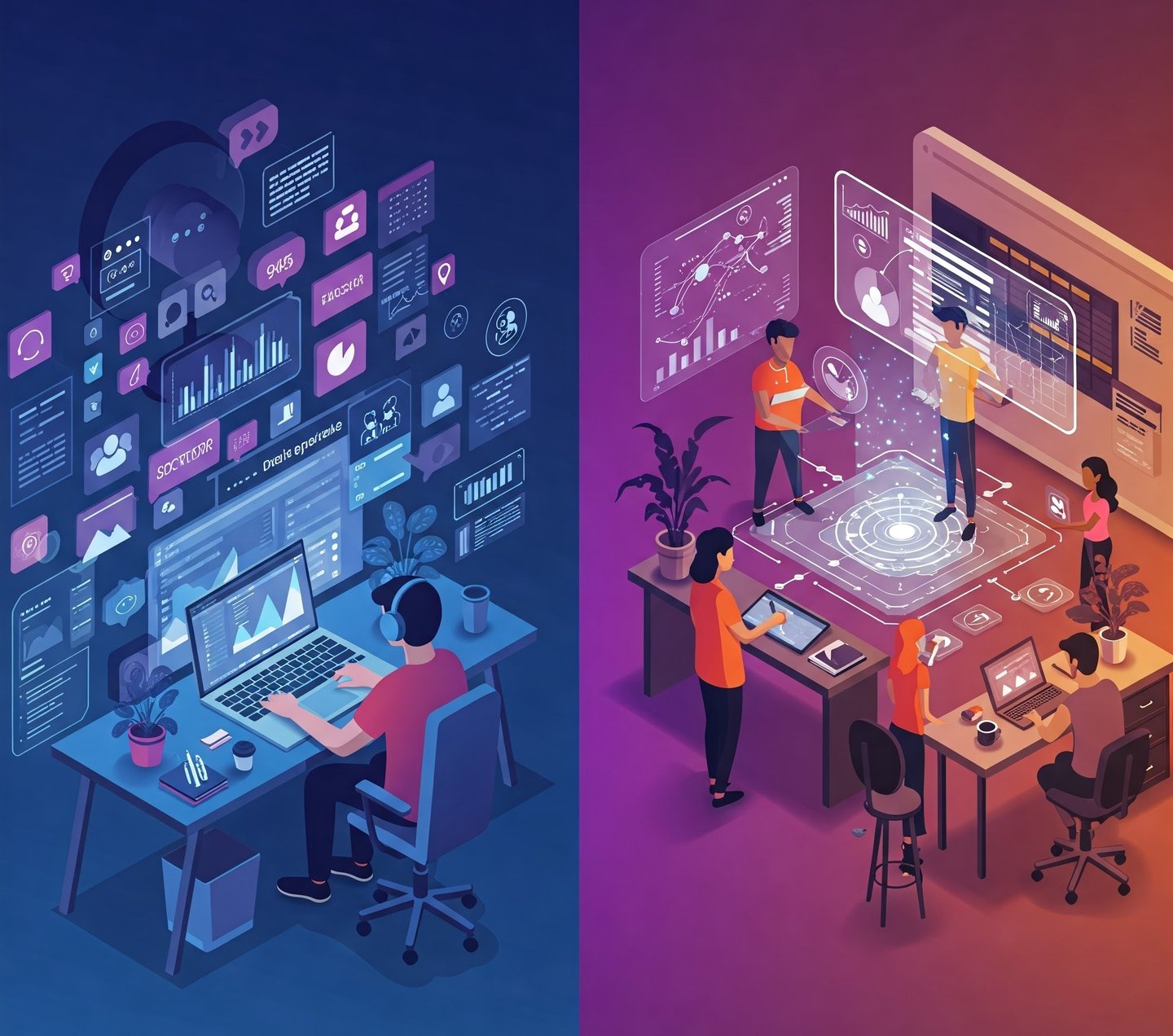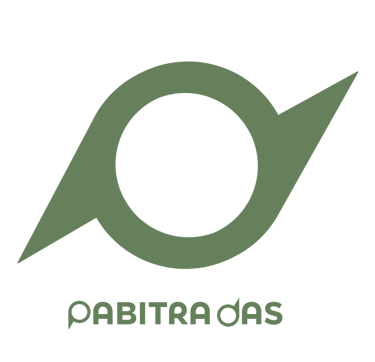Freelancing vs. Building a Startup: Which One is Right for You?
In 2024, more people than ever are leaving corporate jobs to pursue independence. But the question remains: should you start as a freelancer or dive into building a startup? Both paths offer freedom, but they demand very different skill sets, risk tolerance, and strategies for Personal Branding for Entrepreneurs, Content-Driven Growth, and Business Model Innovation. Choosing the right one is critical — not just for revenue, but for long-term fulfillment and scalability.
💰 MONETIZATION & BUSINESS GROWTH
Pabitra Kumar Das, Yashasvi Raikar
4/2/20253 min read


Introduction: The Big Question — Freelance or Build a Startup?
In 2024, more people than ever are leaving corporate jobs to pursue independence. But the question remains: should you start as a freelancer or dive into building a startup?
Both paths offer freedom, but they demand very different skill sets, risk tolerance, and strategies for Personal Branding for Entrepreneurs, Content-Driven Growth, and Business Model Innovation. Choosing the right one is critical — not just for revenue, but for long-term fulfillment and scalability.
Problem: Why Most Founders Struggle to Decide
The challenge is simple yet complex: freelancing offers immediate income and autonomy, but limited scalability. Startups offer potential for exponential growth but come with uncertainty, funding challenges, and team management responsibilities.
According to recent surveys by LinkedIn (2024), more than half of early-career professionals are exploring independent career paths, but many are unsure whether freelancing or startup building is the right fit. Without clear Entrepreneur Coaching and guidance, this indecision can delay business growth and Organic Lead Generation efforts.
Step 1: Freelancing — The Fast Track to Independence
Freelancing provides quick entry into self-employment, allowing you to monetize skills immediately. It builds Authority Building on LinkedIn, creates a personal brand foundation, and helps generate short-term revenue without overhead.
Case Study: Justin Welsh
Justin Welsh went from SaaS executive to full-time freelancer and solopreneur, building a multi-million-dollar personal brand around writing and LinkedIn courses. His income comes from a combination of consulting, digital products, and community-building — all without running a startup.
Action Steps:
Define your niche and build Personal Branding for Entrepreneurs across LinkedIn and Twitter.
Package skills into clear, outcome-based services.
Focus on Content-Driven Growth through consistent writing, newsletters, and tutorials.
Step 2: Building a Startup — The Scalable Long Game
Startups are all about creating scalable systems. Instead of selling time for money, you build products or services that can grow without linear effort. This requires High-Performance Leadership, resource management, and B2B Growth Strategies.
Case Study: Melanie Perkins (Canva)
Melanie Perkins started with a small startup idea for student design tools and transformed it into Canva — now valued at over $40 billion. Her focus on Business Model Innovation and scaling globally proves that startups, while riskier, can deliver massive impact and financial freedom.
Action Steps:
Start with a validated problem and MVP (Minimum Viable Product).
Assemble a small team with complementary skills.
Use Digital Marketing for Startups and strategic content to drive adoption.
Step 3: When to Shift from Freelancer to Founder
Many successful founders start as freelancers, building audience trust and Organic Lead Generation before pivoting into startups. This transition requires a shift in mindset from service delivery to product creation and team-building.
Case Study: Nathan Barry (ConvertKit)
Nathan Barry began as a freelancer and content creator before transitioning into SaaS founder of ConvertKit, now generating over $40 million ARR. His journey highlights the value of evolving from selling time to scaling products.
Action Steps:
Use your freelancing years to build Authority Building on LinkedIn and a strong mailing list.
Identify repeatable problems you can productize.
Transition slowly: overlap product creation with client work until you hit critical mass.


Conclusion: Know Your Risk Profile and Long-Term Goals
Freelancing offers stability and independence with limited scalability. Startups offer scalability but demand resilience, High-Performance Leadership, and resource management.
Look at the paths of Justin Welsh, Melanie Perkins, and Nathan Barry to understand that both routes can lead to success — but only if they align with your skills, goals, and personality.
Pabitra Kumar Das’ advice: “There’s no wrong choice — only a misaligned one. Know your strengths, build trust through consistent Content-Driven Growth, and adapt as you evolve.”
👉 Book your free strategy consultation with PD Consulting to map your career and business growth plan.
Key Data Points Recap:
64% of early-career professionals struggle to choose between freelancing and startups (Gartner, 2024).
Justin Welsh has built a multi-million-dollar personal brand (Forbes, 2024).
Canva is valued at over $40 billion (TechCrunch, 2024).
ConvertKit crossed $40 million ARR in 2024 (OpenView Report).
References & Sources:
Empowerment
Strategic insights for startups and businesses.
Innovation
Join our newsletter
info@pabitradas.in
+91 8984177207
© 2024. All rights reserved.
